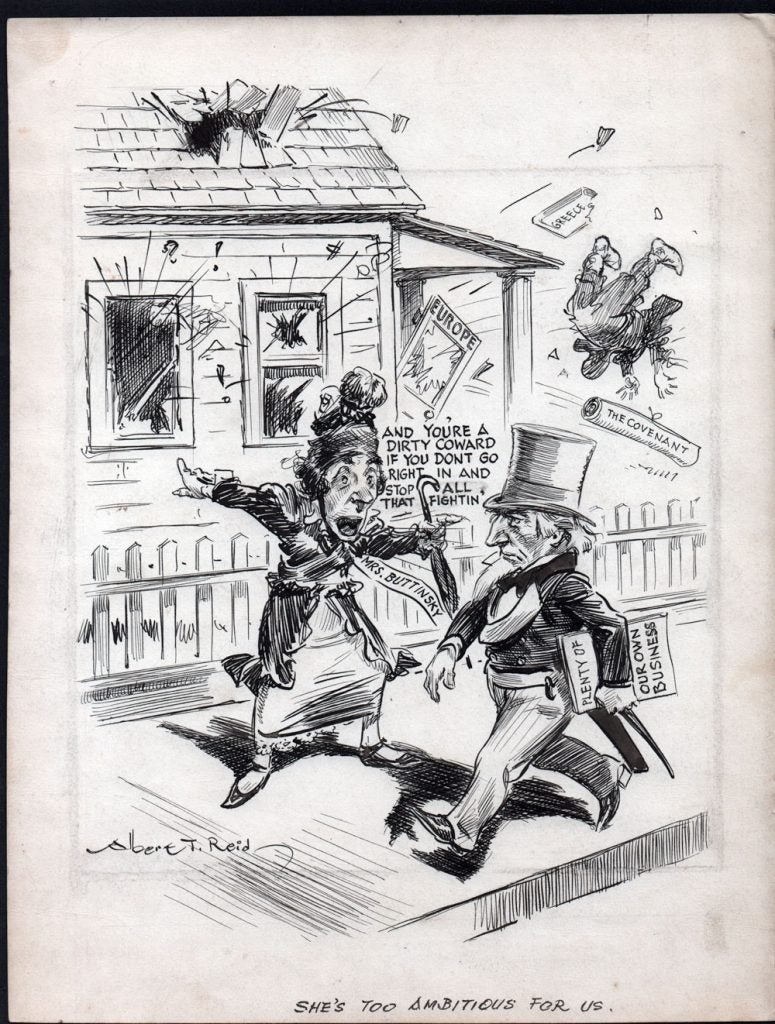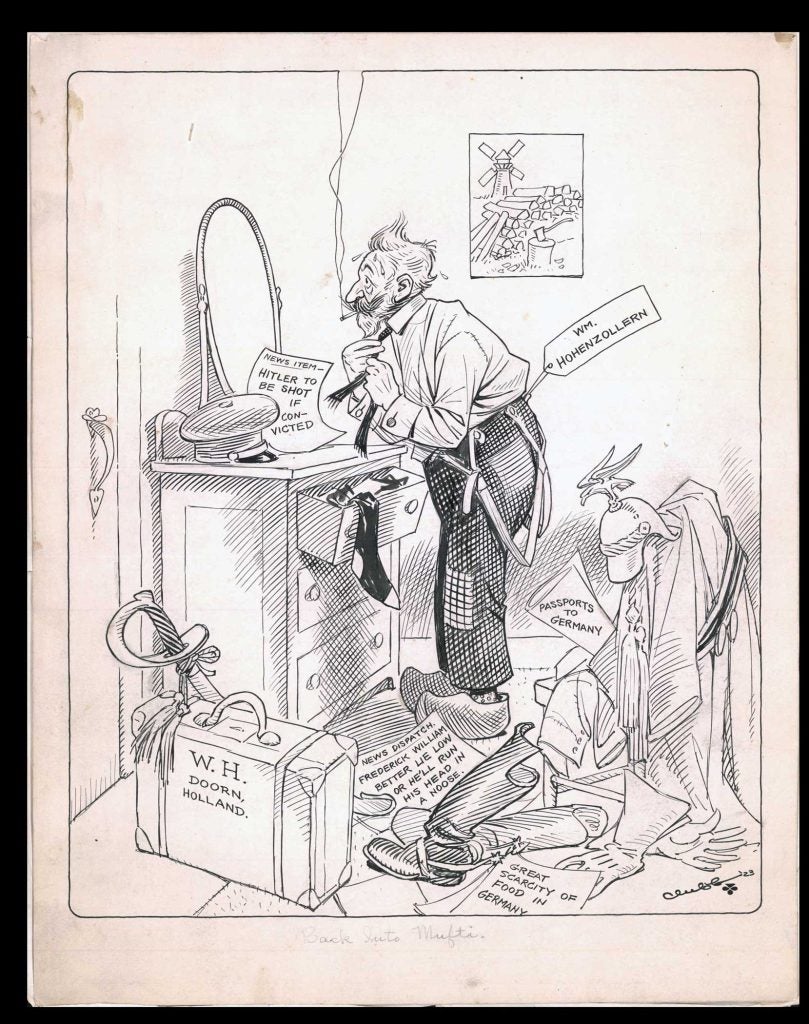
1923.09.10 “She’s Too Ambitious for Us.”
by Albert Turner Reid (1873-1958)
11 x 14.5 in., ink on paper
Albert Reid sold his first political cartoon to the Topeka Mail and Breeze in 1896. After this first cartoon, his work began to appear regularly in the Kansas City Journal, Kansas City Star, Chicago Record, the New York Herald, and the Saturday Evening Post.
Reid was a successful businessman, a staunch supporter of the American farmer, a composer, a painter of murals and a teacher of art. The art school which he started with George Stone in Topeka was the beginning of Washburn’s Art Department. If he had been active in larger political centers, he probably would have received even more recognition. A large collection of his work is in the collections of the Kansas Historical Society.
After WW1, Isolationism was the name of the game for US foreign policy. President Harding’s victory speech (November 1920), the first to be broadcast on the radio, called for “a return to normalcy” and declared the issue of America’s involvement in the League of Nations “deceased.” The Covenant forming the League of Nations was included in the Treaty of Versailles and came into force on January 10, 1920.
The Corfu incident was a 1923 diplomatic and military crisis between Greece and Italy. It was triggered when an Italian general heading a commission to resolve a border dispute between Albania and Greece was murdered in Greek territory along with members of his staff. In response, Benito Mussolini issued a severe ultimatum to Greece and when it was not accepted in whole, dispatched forces to bombard and occupy Corfu.
Mussolini, who created the fascist party in 1919 and had become Prime Minister in 1922, defied the League of Nations and stated Italy would leave if it arbitrated in the crisis, and the Conference of Ambassadors instead eventually tendered an agreement favoring Italy. This was an early demonstration of the League’s weakness when dealing with larger powers. Mussolini’s reputation in Italy was enhanced.

1923.11.11 “Back into Mufti”
by John Scott Clubb (1875-1934)
14 x 18 in., ink on board
Coppola Collection
Clubb’s daily cartoons appeared on the editorial pages for 34 years. Clubb began his career in 1900 at The Rochester Herald where he stayed until 1926. From 1926 until his death in 1934, Clubb was a cartoonist at the Rochester Times-Union. His readership extended beyond the local area, and his cartoons were reproduced in magazines and newspapers nationwide.
The Beer Hall Putsch, also known as the Munich Putsch, was a failed coup by Adolf Hitler and other Nazi leaders in Munich, Bavaria, on 8–9 November 8-9, 1923. About 2000 Nazis marched on the Feldherrnhalle, in the city center, but were confronted by a police cordon. Hitler escaped immediate arrest and was spirited off to safety in the countryside. After two days, he was arrested and charged with treason.
On November 10, Crown Prince Wilhelm of Germany ended his exile in the Netherlands and crossed back onto German soil. Dutch authorities had informed him that he would not be allowed to return to Holland as a refugee again. After Stresemann became chancellor in August 1923, Wilhelm was allowed to return after giving assurances that he would not engage in politics.
“Mufti” is plain or ordinary clothes, especially when worn by one who normally wears, or has long worn, a military or other uniform.
The putsch brought Hitler to the attention of the German nation for the first time and generated front-page headlines in newspapers around the world. His arrest was followed by a 24-day trial, which was widely publicized and gave him a platform to express his nationalist sentiments to the nation. Hitler was found guilty of treason and sentenced to five years in Landsberg Prison, where he dictated Mein Kampf. On 20 December 1924, having served only nine months, Hitler was released.

